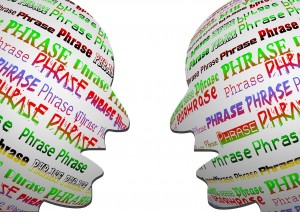 In my ripe old age of somewhere in my fourth decade, I’ve come across three phrases that can make a world of difference when dealing with your children, friends, family, argumentative adults, anyone. Lately, I’ve noticed the lack of these phrases coming from people of power (or those who think they have power), those who feel superior, or just people who feel owed (at any age). Regardless of who you are, consider these phrases and question when you last heard or said them. Here they are in no particular order:
In my ripe old age of somewhere in my fourth decade, I’ve come across three phrases that can make a world of difference when dealing with your children, friends, family, argumentative adults, anyone. Lately, I’ve noticed the lack of these phrases coming from people of power (or those who think they have power), those who feel superior, or just people who feel owed (at any age). Regardless of who you are, consider these phrases and question when you last heard or said them. Here they are in no particular order:
1) “I’m sorry” or “I apologize.” These synonymous statements can go far in releasing someone’s anger directed at you or anyone, and it doesn’t take much to utter them. Hopefully, they are said meaningfully, but even if you’re not truly sorry, “I’m sorry to hear that” is at least a little something that can ease a person’s angst. Whenever someone, adult or child, has a problem and tells me all about it, one of my first responses is “I’m sorry.” Sometimes I then hear, “You don’t have to be sorry; it’s not your fault,” but to me that doesn’t matter. The fact is I’m just sorry that person is going through said difficult situation. Even if my kid is starving to death after just eating dinner, my reply is usually, “I am sorry to hear that.” Mainly because I am sorry to hear that (“And why didn’t you eat all of your dinner?” but that is usually said in my head) and I’m also bit dismayed as I offer the plate of uneaten food, but it’s better than an argument. Other times, kids (or adults) just want to be heard or validated, and by saying “I hear you and I’m sorry that happened,” can go a long way in many cases.
2) “That was my fault.” (Or, even, “Oops! My fault!”) Why is it that people have such a hard time assuming fault? This one goes hand-in-hand with “I’m sorry,” such as “That was my fault; I’m sorry.” It’s not going to kill your ego and it is truly okay to admit self-blame. You’re still a good person, and not perfect (because who wants to hang out with the person who never makes a mistake?). Once you admit fault, the pressure is often  relieved. This applies to situations with your kids or in a meeting, just assume the blame if it truly is your fault, remedy the problem, and move on. I’ve been in multiple situations lately where the same person doesn’t ever accept fault or blame, but instead turns it around and puts it on someone else. That not only makes everyone upset (and infuriates me), it also reveals that this person cannot be trusted because who knows who will be wrongly blamed next? It could be you; it could be me. It also seems to say that this person never does anything wrong, and how is that possible? We’re human, we make mistakes, own up to it, learn, and keep going. It’s that simple.
relieved. This applies to situations with your kids or in a meeting, just assume the blame if it truly is your fault, remedy the problem, and move on. I’ve been in multiple situations lately where the same person doesn’t ever accept fault or blame, but instead turns it around and puts it on someone else. That not only makes everyone upset (and infuriates me), it also reveals that this person cannot be trusted because who knows who will be wrongly blamed next? It could be you; it could be me. It also seems to say that this person never does anything wrong, and how is that possible? We’re human, we make mistakes, own up to it, learn, and keep going. It’s that simple.
3) “Thank you.” This very easy two-word acknowledgment can go miles in someone’s life. Just saying “thank you” makes people feel like the effort they put into something was worth it. Expressing gratitude can be applied to adults or children. They all appreciate it because no matter who it is,  people like to be recognized for their work, and saying “thank you” (or even “thanks!”) is so easy. When my kids finally put their shoes away instead of kicking them off and leaving them on the floor, I say thank you. If someone goes out of his way and holds the door open, tells you that your gas cap is not screwed on, or whatever small token it might be, just say “thank you.” Express your gratitude for those big or small things and everyone wins.
people like to be recognized for their work, and saying “thank you” (or even “thanks!”) is so easy. When my kids finally put their shoes away instead of kicking them off and leaving them on the floor, I say thank you. If someone goes out of his way and holds the door open, tells you that your gas cap is not screwed on, or whatever small token it might be, just say “thank you.” Express your gratitude for those big or small things and everyone wins.
So there you have it, three phrases that can make a world of difference; try them out (if you don’t use them already) and see the results for yourself. (And thanks for reading!  )
)
I’ve always loved phrases; they become my go to tool to help me realign with my inner peace. Ho opono pono is an old Hawaiian way to cleanse and clear out what’s in the way of having ongoing inner peace and this process uses 4 phrases. Repeated over and over again like a mantra, the 4 phrases are: I love you. I’m sorry. Please forgive me. Thank you. These phrases are repeated silently over and over again. I’ve used them on many occasions in my life, mostly to reset myself for being more present and allowing for unlimited possibilities. Do they work? I believe they do.